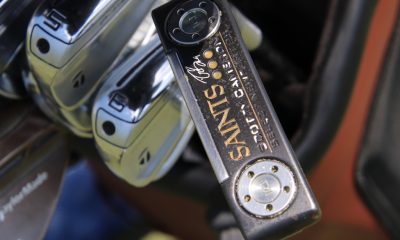Podcasts
Full Transcript: The 19th Hole podcast interview with Barbara Nicklaus
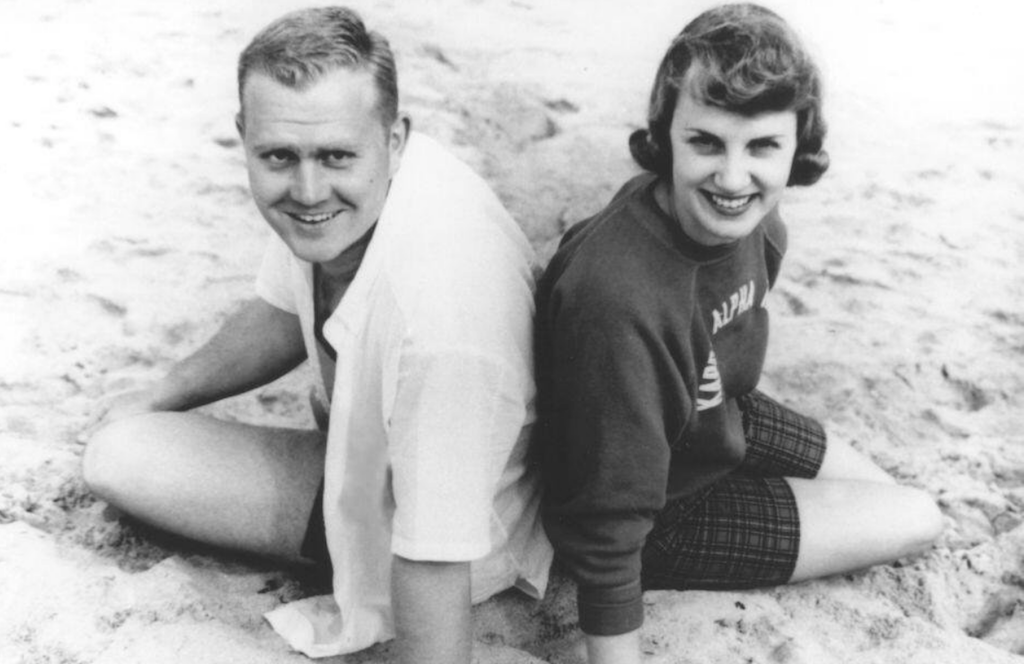
Check out Michael Williams’ full conversation with Barbara Nicklaus, Jack’s wife, on our 19th Hole podcast below. Listen to the full episode here!
Editor’s Note: We’ve been listening to your feedback about wanting transcripts for the podcasts. Obviously, we can’t transcribe every single podcast, but we’ll try to provide these as often as possible. Thanks for listening!
—
Michael Williams: I’ve been telling everybody since I’ve met you. If Jack is The Golden Bear, I’ve been calling you the Teddy Bear because you’re just the nicest person, so easy to get to know, and you just remind me of my own Mom.
Barbara Nicklaus: Oh, what a nice compliment. Thank you.
Michael Williams: You’re welcome. We know so much about Jack, his life is documented in so many ways and in so many places. Looking up and researching this chat, I couldn’t even find a biography for you online. There’s no Wikipedia page. There’s no nothing. You’re so humble. You’re so under the radar.
Barbara Nicklaus: Well, I think that’s a good thing.
Michael Williams: And a very rare thing these days, by the way. I wanted to give people and myself a little background on the person that you are. Where are you from? Where did you grow up?
Barbara Nicklaus: Well, Jack and I both grew up in Columbus, Ohio. We were from different sections of town, so I didn’t meet him until the first week of our freshman year in college. My dad was a high school math teacher, and we just had a very nice … I don’t know what you call it. I’ve had a great life.
Michael Williams: When you were growing up, were you from a golf family? Did you know a lot about golf? Were you prepared to be the wife of a golf professional?
Barbara Nicklaus: No, actually when I met Jack, I really didn’t even know golf existed. Golf wasn’t a real popular sport back then, particularly in high school. So, I didn’t really know anything about it when I met him, and we dated. We met, like I said the first weekend of our freshman year in college, and we dated until about New Year’s Eve when you kind of run out of Mickey Mouse things to talk about. He sort of went back dating the girl he had been dating. I actually started dating the fella that she was dating. Then about February, my birthday, all of a sudden I started getting these cards in the mail. I got a birthday card from his sister, and one from his mom and dad, and one from Jack. So, he called me that day and then we’d been together ever since. We were married between our junior and senior year. I sort of decided maybe I should learn a little bit about golf, so I took it Winter quarter at Ohio State. We hit balls just in tin building and then they let us play five holes at the end of the quarter. It was really hilarious because I think I made three bogeys and two pars. I said to Jack, “I really don’t understand why you practice so much.” Of course, I haven’t broken 65 for nine holes since. That was my meeting with golf.
Michael Williams: It sounds like you’d taken the thing seriously, you could have been better than him.
Barbara Nicklaus: Oh, I think that was just a little miracle that never, ever, ever happened again.
Michael Williams: That is a great story. You married Jack, I believe, in 1960 and he went pro in 1961. He’d already had a great amateur career, but did you both know right away that you were headed for one of the all-time great careers? Could you feel it even at the beginning?
Barbara Nicklaus: Absolutely not. Like I said, we grew up in Columbus, Ohio. We planned on living in Columbus, Ohio. We were married between our junior and senior year of college. He was trying to sell insurance, and play golf, and go to school. He really expected to remain amateur. So, Jackie was born in September of 1961, and Jack turned pro in November. We’d been married for a year and half before Jack turned pro. Of course Bob Jones, was one of his heroes. Mr. Jones couldn’t have been nicer to him at a lot of amateur tournaments. It was a big decision, but when he wanted to be the best and he said, “If want to be the best, I have to play against the best.” In 1962, which was his first year on tour, his first tournament was the L.A. Open in January and he split last place with two other golfers at $100. He got a check for $33.33, so, big beginning.
Michael Williams: And you cashed it and spent every penny, didn’t you?
Barbara Nicklaus: I wish I had the check. I never even thought about it at the time, but it’d be pretty funny to have now.
Michael Williams: Yes it would. That check itself would be worth a lot more than $33.33.
Barbara Nicklaus: He didn’t even get to 34 cents. He only got 33.
Michael Williams: Yeah, I know, that other guy owes you a penny, okay. I’ll help you hunt that guy down. I know some folks. Famously, Tiger Woods as he started his pro career was aiming for Jack, in terms of his target for excellence. Was Bobby Jones the guy that Jack was aiming for?
Barbara Nicklaus: You know what, golf wasn’t really talked about in that sense as it is today. I think the first time Jack even thought about breaking Bob Jones’ career record, was when he was at … I’m not sure it was the Open or the PGA in Cleveland and someone said, “Well, if you win today, you break Bobby Jones’ record.” I think that’s the first that was even brought to attention. The majors just as the years have gone on, have gotten bigger in the public’s eyes. [Editor’s Note: Nicklaus won his 1973 PGA Championship at Canterbury Golf club outside Cleveland, his his third PGA and 14th major championship].
Michael Williams: So, at that point he really wasn’t aimed at any records or numbers or anything like that. It was more about achievement, in terms of his own personal goals.
Barbara Nicklaus: It was. It really was. It was, like I said, “If you wanna be the best, you play against the best.” Victories were what he was all about. He always says, “Golf is a game” And he loved it. I always say, “Very few men are really happy in their profession.” And I said, “How unbelievably lucky could Jack be to be happy in two. Playing golf and golf course design.” We both feel very blessed.
Michael Williams: The tour obviously was very different in those days from going on the road to the tournaments themselves. Everything was different. What are some of the biggest differences for you when you look at how the tour now is versus how it was when you were doing it?
Barbara Nicklaus: Well, I love the way we started out, but I can’t say that the way the gals and guys are now isn’t better. We basically drove, drove from tournament to tournament. We had Jackie, so that was when you could put a port-a-crib … It would sit in the backseat of the car and we just dumped him back there and traveled. Michael, we’re so old, we didn’t have the disposable diapers back then, so you can imagine how are motel rooms smelled. It was a different atmosphere. If someone else’s husband happened to be playing better, than say Jack, I would keep her kids for the day or vice versa. It was a much smaller tour and more family, but what the wives have now is wonderful. They have a school for the kids, and so they’re all together. The tour’s grown unbelievably, but I still cherish some of those old-fashioned days.
Michael Williams: Were you particularly close to any of the players and their families?
Barbara Nicklaus: Well, it really just depended. Winnie Palmer, Vivienne Player and I have been dear, dear friends for a hundred years [laughs]. We hated it when we lost Winnie. Vivienne and I are still really good friends. There’s a lot of them out there that I still see a lot. We just kind of started in the early 60s and the six of us traveled together a lot.
Michael Williams: I just wondered if it was a barrier to friendship, the fact that Jack was at another level than these other guys.
Barbara Nicklaus: Well, you know what, I don’t think he was thought of it back then. He was really just starting out, and obviously Arnold was winning a lot, and Gary. Later on, Tom Watson came along and just a lot of the other guys, so it went in steps and everything fit together.
Michael Williams: Yeah. There’s sort of a smooth transition if you will between those generations and groups of players. You mentioned raising kids, the difference now between raising kids. You have, let’s see, one, two, three, four, five, I believe?
Barbara Nicklaus: Yeah, we do.
Michael Williams: Well, five majors of your own. One of them named Michael, quite wisely.
Barbara Nicklaus: Absolutely. Absolutely.
Michael Williams: Appreciate that! Raising the kids must have been just wild, yeah?
Barbara Nicklaus: Well, you know what, Michael? When you say that, I have the attitude, “You know what, you do what you have to do.” Of course, everybody who knows me, knows this story, but I’ll quickly tell you. When I was at the Masters in 1962 and Jackie had been born the September before, so I’m on the back patio with some other wives. I’m bemoaning the fact that I missed my baby and this and that and the other thing. There’s sort of an older woman sitting over on the patio knitting. All of a sudden, she put her knitting down. She put her finger in my face and she said, “Listen little girl, you had Jack long before you had that baby and you hope to have Jack long after that baby’s gone. Now you grow up and be a wife.” I was kind of taken aback. It actually was Elita Mangrum. She was Lloyd Mangrum’s wife. I was kind of taken aback and then I didn’t see her for about 10 years. I saw her and I said, “Elita, you will never know what you did for my marriage.” I said, Jack would call me and I might have three in diapers and he’d say, “I’m lonely.” I said, “Elita, I was on the next plane to that tournament.” So, it was sweet because I can still see her finger in my face as a 22 year old wife.
Michael Williams: What a life changing moment, such a great story.
Barbara Nicklaus: Oh, it was and I’ve shared that with a lot of the younger wives. Just because you become a mother, you don’t stop being a wife. That was one of my biggest lessons.
Michael Williams: In your life, you’ve obviously had some great blessings and you’ve had some amazing experiences. You’ve led a singular life with a lot of success, but like all of us, life is not all success. You experienced your share of tragedy. The loss of your grandson Jake was a tragedy that’s unimaginable. But that same year you founded the Nicklaus Children’s Healthcare Foundation. That’s when your career in philanthropy really took full flight. If you would, just talk a little bit about the start of the foundation.
Barbara Nicklaus: Of course, the loss of Jake was unbelievable. It’s a double whammy because you feel so bad for your children and then you’ve lost this precious baby. But our thinking that we wanted to help children really started when our daughter was 11 months old. We had a scary experience with her and thought we might lose her. So we sat in the hospital looking at each other and saying, “You know what, if we’re ever in a position to help anyone we want it to be children.” We just feel blessed that we’ve been able to do that. We did start our Nicklaus Children’s Healthcare Foundation in 2004, I think it was. We lost Jake in 2005 and we were just helping smaller places. Well, when Jake died, we just jumped to a bigger level. That horrible statement, “Some good comes out of all bad.” Is true; Jake was such a precious child, and so we feel like we’re keeping his memory alive with a lot of the charity work that we’re doing in Jake’s name.
Michael Williams: I was amazed to hear the story about the Foundation. I knew something about it, but having attended the events during the summer, I saw the videos and met some of the people there. I tell you, honestly, and it’s not even just a turn of phrase. There literally was not a dry eye in the house when you talked about some of the ways that you’ve helped people. I love the fact that you take on causes that nobody else takes up. These unknown diseases and you’re applying charity and philanthropy and research where no one else is. No one else is helping, and you dive in and do those things. It must be a wonderful feeling.
Barbara Nicklaus: Well, that’s a nice compliment, Michael. We started our foundation and we wanted it to be local. We wanted to grow it, so that we can be a global foundation. When we partnered with the people at Creighton Farms, we feel like we’re branching out from just our home area. Of course the last two years, it’s been benefiting PKU, which to tell you the truth, I had never heard of. [Editor Note: Phenylketonuria, also called PKU, is a rare inherited disorder that causes an amino acid called phenylalanine to build up in the body. For the rest of their lives, people with PKU need to follow a diet that limits phenylalanine, which is found mostly in foods that contain protein].
It’s such a rare thing to happen, and such a distress for a family. That’s been wonderful to help that charity. We’ve helped Children’s National in Washington, D.C. and of course the beneficiary for the Memorial tournament in Columbus, Ohio is a nationwide Children’s Hospital. We just feel blessed that we’ve been able to help children.
Jack has been unbelievably great. He’s actually supported me all these years, and now that he’s not playing so much golf, we’ve really gotten him involved. I think he’s totally enjoying being a part of this charity and kind of just hearing what’s been after him. In fact, I tease him that I’d had to raise his salary twice this year. He laughs. He says, “Yeah, from zero to double zero.” But he’s a pretty good employee.
Michael Williams: That is awesome. When I talked to him again during the summer, I asked him whether he enjoyed the 18 majors and all the wins more or if he enjoyed the philanthropy more. He said he really enjoyed the philanthropy more and it was because he was a partner of, albeit a junior partner, to you. That’s what he said.
Barbara Nicklaus: Oh, oh, well I haven’t heard that, so I won’t tell him I heard that.
Michael Williams: Hopefully he’s listening to the show every week, but I’m just throwing that out there. Just before we wrap it up, I want to go a little bit more about your, back up to a little bit more about your role as a mentor on the PGA tour. Talk about the players themselves because you get to know some of these guys, these young men. Of course, they make more money, have different lives, but other than that, are they really different than the young men that were around when Jack was touring and during his career?
Barbara Nicklaus: Well, you know it’s funny, Michael, ’cause you look at all the generations and this generation, all I can tell you is, gets it. I think they have the greatest group of young players. Rickie Fowler, and Rory McIlroy, and Daniel Berger, and Jordan Speith, I mean just so many of these young guys. They get it. They’re giving back at early ages. It’s really fun to see. When some of the young girls will ask me some questions, I’m so complimented because I’m really probably not even close to being their mother now. I’m closer to being their grandmother. The girls are adorable. They’re special and they’re very supportive. It’s just fun to see.
Michael Williams: Did you ever give someone the Mrs. Mangrum speech?
Barbara Nicklaus: Oh, yes. Oh, yes. I think an awful lot of the young girls, that’s one of the first things I always say. Because it’s been several years ago, but you know I have heard some say, “Well, I’m not gonna do that anymore. I have a baby to take care of.” Then all of a sudden, I see Elita Mangrum’s finger in my face again and I have shared with a lot of the girls. In a nut shell, it’s very true.
Michael Williams: So I’m gonna give you a fantasy scenario here. Let’s say you’re queen of the tour, empress of the PGA tour-
Barbara Nicklaus: Uh-oh. No, no, no, no, no, no, no.
Michael Williams: … It’s been handed down. The decree has already been written. Would you change anything? What would you change? What would you step in and say, let’s do this a little differently?
Barbara Nicklaus: I’d like to say … You know, I don’t think I’d change anything. Jack and I were 20 years old when we got married and took all four of our parents with us to get our marriage license. I feel like we’ve grown up together. I feel like we’ve been a team and a pretty good team. People say, “Well, what about being a golf widow?” I said, “You know what? Jack has always made me feel like I’m a part of his life.” If it’s a phone call or a wink or what.
Barbara Nicklaus: I said I’ll tell you a story. It was at Oak Hill at the US Open and after the round, there’s like 40,000 people on the golf course. After the round, he said to me, he said, “Where were you on the 8th hole?” I said, “You’ve got to be kidding. You know that I wasn’t there on the 8th hole?” I actually had stopped to talk to, well, it was Laura Norman, at the time. I did miss the 8th hole and I said, “How in the world do you know?” He says, “I know how you walk and I know where you are and I couldn’t find you.” That was probably the nicest compliment he ever gave me. ‘Cause I didn’t even think he knew I was on the golf course, even after say 30 or 40 years of following him. So anytime I feel like golf widow, that little story comes to mind and I just smile.
Michael Williams: You know, I’m a great big mush ball and it’s not fair for you to make me cry on my own stupid radio show, okay. It’s just not cool.
Barbara Nicklaus: Well, come on down and I’ll give you a hug.
Michael Williams: Sold. Last couple of questions. This is like total trivia. I happen to know what Jack’s favorite flavor of ice cream is and we share the same favorite flavor. It is in fact butter pecan…
Barbara Nicklaus: Yes, you are correct.
Michael Williams: Yes. What is your favorite flavor of Jack Nicklaus ice cream?
Barbara Nicklaus: Well, some of them that haven’t been out very much they … I actually, to tell you the truth, love the vanilla.Then they have a nice black cherry, and they have a mango that’s good. There are a lot of flavors that really haven’t hit the public in force, but vanilla’s terrific.
Michael Williams: Yeah, we had a couple of bowls. Getting back to the Foundation. I know there’s a lot of people that are aware of the Foundation now, but don’t necessarily know how to contribute and/or participate. How can they get more information about contributing, going to events, that sort of thing?
Barbara Nicklaus: Well, we have a website, which is Nicklaus Children’s Healthcare Foundation. We are with Nicklaus Children’s Hospital in Miami now… It was Miami Children’s Hospital, and they changed the name two years ago to Nicklaus Children’s Hospital. ‘Cause there again, we’re trying to get more of a global feel and have people know we now have treated people from every state in the union and 119 countries. We’re very proud of that … just for an example, 64 pediatric cardiologists, so we have just a terrific heart program, cancer program. Our foundation supports that as well as other charities around the United States. It’s our tiny little foundation and it’s growing. The Jake Tournament, which we do every year at the Bear’s Club here Jupiter, Florida, in memory of Jake, is probably one of our biggest fundraisers, and that goes to our foundation and to some of the hospital projects.
Michael Williams: Well, I can just say that we, collectively, the golf, sports, America in general, we’re so proud of you. We are in awe of you for being the mother that you are, the wife that you are, the philanthropist that you are, and just overall the person that you are.
Barbara Nicklaus: Oh, Michael, that is so sweet. It’s interesting because golf has given Jack and me so much more than we could ever give back to golf or the world. It’s opened a lot of doors for us and we feel blessed that golf has opened these doors and helped us to help other children. Thank you. I loved talking to you, Michael and I hope we’ll see you soon.
Michael Williams: Thank you so much, dear. I will be down there to pick up that hug.
Barbara Nicklaus: Okay, I’ll be waiting. We’ll also feed you dinner. So, come on down for a hug and dinner.
Michael Williams: Ice cream for dessert, no doubt, right?
Barbara Nicklaus: Well, sure. Absolutely.
- LIKE12
- LEGIT0
- WOW0
- LOL0
- IDHT0
- FLOP0
- OB0
- SHANK0
Golf's Perfect Imperfections
Golf’s Perfect Imperfections: Amazing Session with Performance Coach Savannah Meyer-Clement
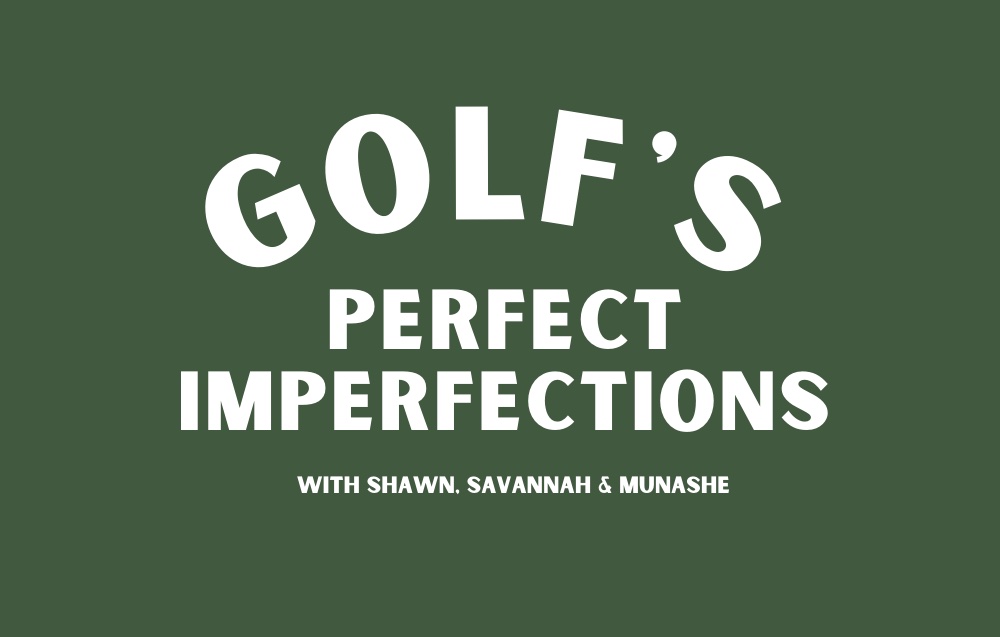
In this week’s episode, we spent some time with performance coach Savannah Meyer-Clement who provides many useful insights that you’ll be able to implement on the golf course.
- LIKE1
- LEGIT0
- WOW0
- LOL0
- IDHT0
- FLOP0
- OB0
- SHANK1
Golf's Perfect Imperfections
Golf’s Perfect Imperfections: Live from Mexico Open + Insight on how the pros stay ready
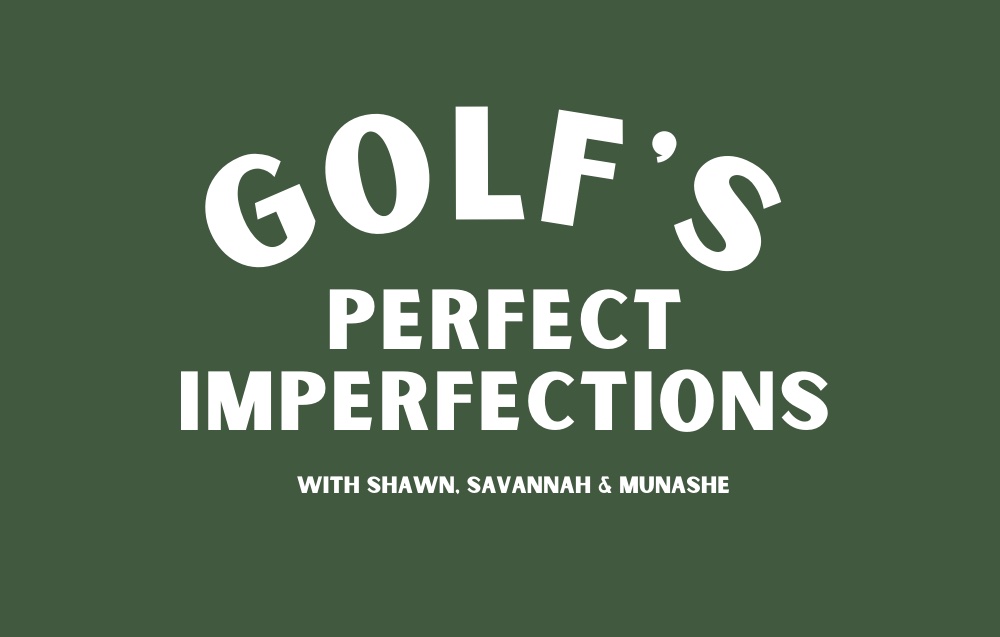
In this week’s podcast, we are catching up with Shawn on his experience at the Mexico Open and we dive into some of the techniques pros are using to stay ahead of the game.
- LIKE0
- LEGIT0
- WOW0
- LOL0
- IDHT0
- FLOP0
- OB0
- SHANK0
Golf's Perfect Imperfections
GPI: 3,000 years and no change in how we exercise our bodies…until now
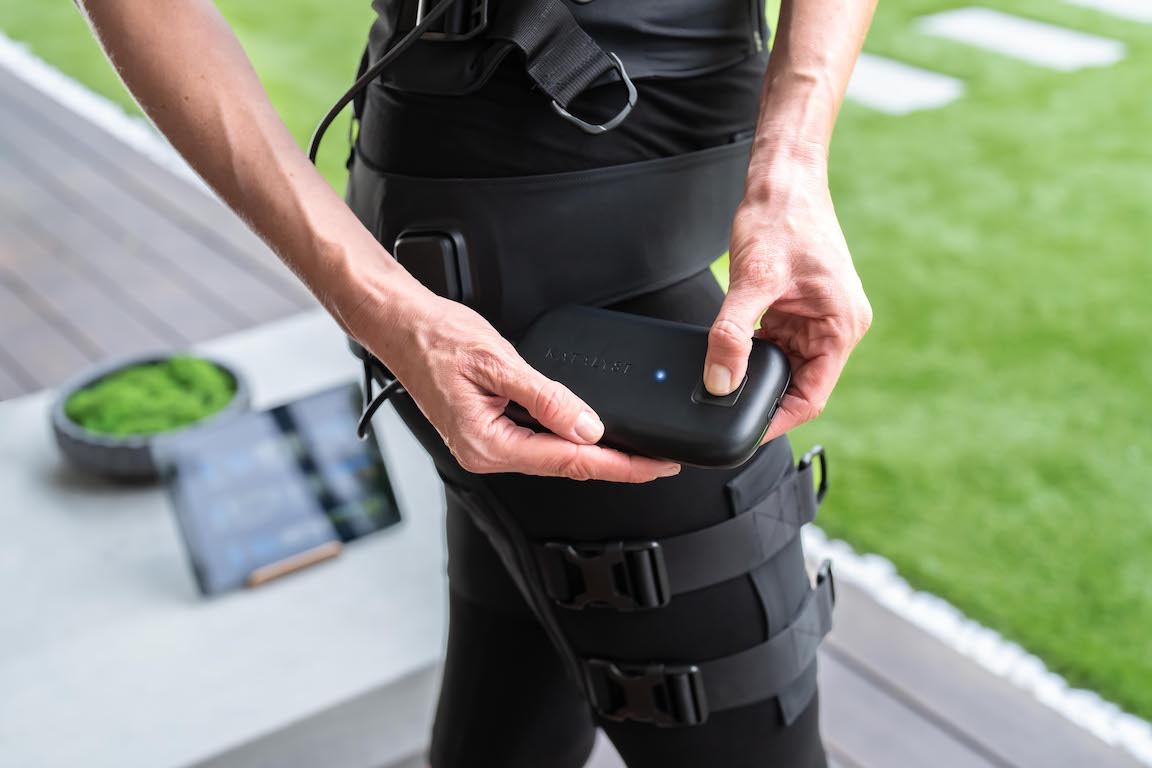
EMS (Electro Muscle Stimulation) training is a highly effective and time-efficient workout that can benefit people of all ages and fitness levels. It involves using a special suit that delivers electrical impulses to the muscles, causing them to contract and work harder than they would during traditional exercise. The Team at Wisdom in Golf has partnered with the Katalyst team, which has sought to bring EMS training at the leisure of your own home. Their ultimate goal is to help everyone develop with this technology at their own pace.
In a recent podcast, we did, with the CEO & Founder of Katalyst, Bjoern Woltermann, set the tone for what the EMS training is all about and what potential it has for every golfer out there, amateur or professional:
[Minute 02:09] “We’re talking about a new way of working out for the first time in 3000 years. Because for 3000 years, if we think about it, the Olympic Games are still the same, right? We wrestle, and we throw things, and we run, and we lift things. You know, it sure to be a rock, and now it’s a little bit more refined, but at the End of the day, we measure how much we can lift over our head. That’s literally what we measure.” – Bjoern Woltermann, CEO & Founder of Katalyst
This technology has been used for decades in physical therapy and rehabilitation settings but is now gaining popularity as a workout tool. One of the main benefits of EMS training is that it allows people to achieve maximum results in minimal time. A 20-minute EMS session can be equivalent to a two-hour traditional gym workout. This is especially beneficial for busy professionals and those with hectic schedules who struggle to find time for exercise.
Whether you want to lose weight, build muscle, or improve your overall health, EMS can help you achieve your objectives more efficiently than traditional exercise. Another advantage of EMS training is that it can be customized to suit individual needs and fitness goals. Within a month (Mid-March to Late-April) of utilizing the Katalyst Suit, the team at Wisdom in Golf claims to have seen profound gains in their golf swing, improvement with mind and body connection that is enhanced by the suit, and a better sense of well being.
Here is what Shawn said after using it for a month:
[Minute 35:09] “I did notice in the last week and a half I feel stronger over the ball, and I’m feeling more capable, and that’s, that’s a really fun feel to have for your confidence. So then I proceed to go through my practice session […] my beginning clubhead speed lately has been 102mph-104mph, and I can ramp it up to 110mph-112mph clubhead speed, and that’s pretty much where I have been staying. Last year it was at 114mph clubhead speed”, [35:53],” I haven’t been at 117mph clubhead speed since my 40s, I’m 57 years old, so I ramp it up to 114mph, Wow that’s pretty cool!”,[36:52],” Here I am at a 117mph clubhead speed at 57 years old, and I’m thinking I’m the king of the world right now, and then when I had a nice moment of gratitude, and I thought of you guys {Katalyst Team}.” – Shawn Clement
Furthermore, EMS is low impact and can be adapted to suit all fitness levels, making it an excellent option for people of all ages and abilities. It’s also ideal for those with joint or mobility issues, as the electrical stimulation can be used to target specific muscles without putting additional stress on the joints. Overall, EMS training is a highly effective and versatile workout tool that can benefit every demographic. With its time-saving and customizable approach, it’s no wonder why it’s quickly becoming a popular choice for those looking to achieve maximum results in minimal time.
Listen to the full podcast here.
Additional resources:
- LIKE5
- LEGIT1
- WOW1
- LOL0
- IDHT0
- FLOP0
- OB0
- SHANK5
-
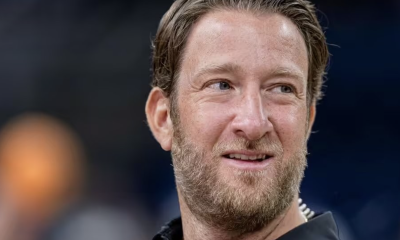
 19th Hole2 weeks ago
19th Hole2 weeks agoDave Portnoy places monstrous outright bet for the 2024 Masters
-
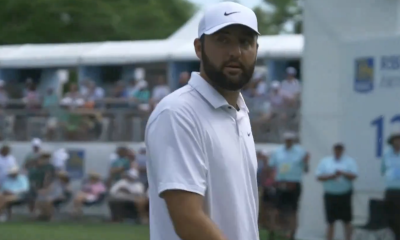
 19th Hole4 days ago
19th Hole4 days agoJustin Thomas on the equipment choice of Scottie Scheffler that he thinks is ‘weird’
-
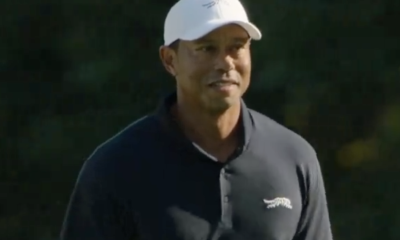
 19th Hole2 weeks ago
19th Hole2 weeks agoTiger Woods arrives at 2024 Masters equipped with a putter that may surprise you
-
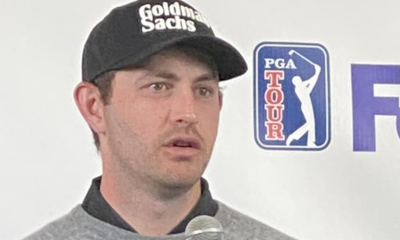
 19th Hole4 days ago
19th Hole4 days ago‘Absolutely crazy’ – Major champ lays into Patrick Cantlay over his decision on final hole of RBC Heritage
-
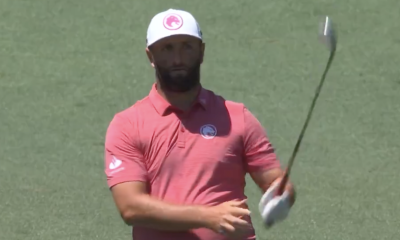
 19th Hole2 weeks ago
19th Hole2 weeks agoTwo star names reportedly blanked Jon Rahm all week at the Masters
-
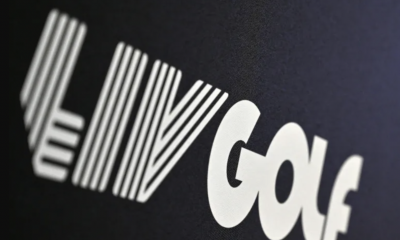
 19th Hole1 week ago
19th Hole1 week agoReport: LIV Golf identifies latest star name they hope to sign to breakaway tour
-
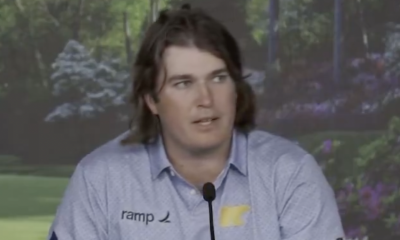
 19th Hole2 weeks ago
19th Hole2 weeks agoNeal Shipley presser ends in awkward fashion after reporter claims Tiger handed him note on 8th fairway
-
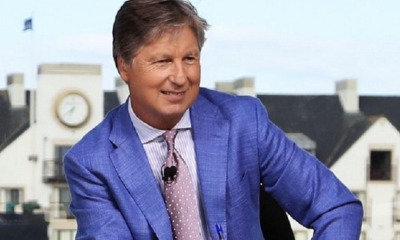
 19th Hole1 week ago
19th Hole1 week agoBrandel Chamblee has ‘no doubt’ who started the McIlroy/LIV rumor and why










